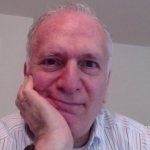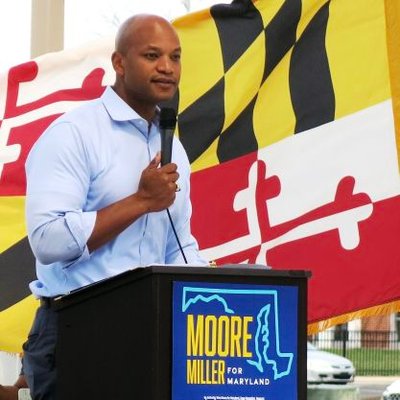Missing the Point: The Integrity of a Major Campaign Theme
Why is Wes Moore running for Governor?
This isn’t about who’s going to win. Mr. Moore is going to win. He’s the Democrat candidate running in a state where his party outnumbers the opposition by two to one. He’s intelligent, well-spoken and naturally charismatic. For most of us, it’s an easy call. Not even our current, Republican Governor is willing to endorse his own party’s candidate. Hands down, Wes Moore is the least objectionable of the two major candidates running. Understandably, polls indicate that Mr. Moore should win by a substantial margin. Congratulations.
Nor is the purpose of this piece to encourage or discourage you to vote for any particular candidate.
No. This is about the confidence we should have in Mr. Moore’s commitment to Maryland and to his principal campaign theme – and about managing our expectations once he takes office.
In what I’ll call his primary television commercial – the one called “Imagined” – Mr. Moore ends his 30 second spot with this statement… “Now, I’m running for Governor because we can’t leave a single Marylander behind. Everyone deserves a fair shot at success – no matter where their story begins.”
As it turns out, for the vast majority of the Marylanders he’s talking about, their story begins in just two places, Baltimore City and Prince George’s County.
Mr. Moore is from Montgomery County, was raised primarily in New York City and, except for his undergraduate education at Johns Hopkins University at its Homewood campus in Baltimore, has spent a great deal of his life elsewhere.
The closing statement he makes in his commercial is certainly true and important, but in making it he begs the following question. Why, if he’s so committed to this particular point, did he choose to run the Robin Hood Foundation in New York City, for four years from June of 2017 to May 2021 rather than become involved in a similar or related program in Baltimore?
His commercial mentions his stint as CEO of the Robin Hood Foundation, which is laudable, but fails to point out that it’s not a Baltimore or even Maryland thing. …Robin Hood was, of course, a fictional character who famously stole from the rich for the benefit of the poor. It’s a good thing that wealthy people and companies are willing to help the disadvantaged, no question about it, but it’s not a model for statewide, self-sustaining economic development and growth.
I don’t know why he’s running. What I do know is that whether we’re talking about the quality of public education or prevalent un- and under-employment, the Maryland children and families most in need of help are in Baltimore City and Prince George’s County where their school systems are the worst in the state and so many households struggle every day to get by.
New York City is, of course, a very much larger economy and much more impressive launching pad for one’s political career. Not to mention a Board of Directors and other Foundation supporters who are high net worth, good-to-know, high profile celebrities.
“Aren’t you being just a tad cynical?”
Well, yeah. My experience with politicians has had that effect, but then, as they say, “The proof is in the pudding.” And the pudding I’m talking about is the lack of Mr. Moore’s involvement and perhaps even interest in Baltimore and Prince George’s County.
When Stephanie Rawlings-Blake decided not to run again for Mayor of Baltimore, Mr. Moore, who was only 36 years old at the time, thought about filing. As reported in The Sun, “I really was very seriously exploring this. I am very frustrated with where we are as a city, and I know we don’t have to be here.” Later, he explained his lack of interest in running for Mayor, claiming that the “best way for me to serve is to fulfill the promise I’ve made to the students at BridgeEDU.”
Baltimore Mayor Rawlings-Blake was succeeded by Mayor Pugh who left office early to go to jail, then by Jack Young who had been President of the City Council and, in turn, by the current Mayor, Brandon Scott who was elected Mayor when he was only 36 years old.
In case you’re wondering, BridgeEDU was founded by Mr. Moore after leaving military service. It was a non-profit that charged students fees for preparatory educational services that would help them transition to their freshman year at college. Whatever the limited value of the program, it had no impact on the profound problems with public education and jobs that Wes Moore would like us to believe he is seriously interested in resolving.
As public education goes, Baltimore City is ranked 24th among the state’s 24 systems. Prince George’s County is ranked 22nd, edging out much smaller Somerset County’s schools which are ranked 23rd.
In terms of their economies, in 2018 according to the Maryland Department of Commerce, Baltimore City and Prince George’s County accounted for almost a quarter of Maryland’s gross domestic product (GDP).
They may not be as financially successful as Howard and Montgomery counties, but Baltimore City and PG County are certainly important to the success of the state of Maryland overall – and may arguably have the greatest potential to elevate the entire state economy. And yet, when you read the short and long versions of Mr. Moore’s position papers on his campaign website – specifically for “Economy: Work, Wages and Wealth,” “Education” and “Unlocking Opportunity for Black Families” – there are virtually no references to the city of Baltimore or Prince George’s County and no specific plans to improve public education and the economies of those communities.
Is Wes Moore running for Governor? Yes. To save Baltimore and help Prince George’s County – which, not incidentally, would be of huge benefit to the entire state? Nah, not really. At least there’s nothing in the pudding to prove it. If he was serious about everyone deserving a fair shot at success, with respect to Baltimore in particular, he could run for Mayor and probably win in 2024, just two years from now. Call me cynical…
“I told you so!”
…Okay. Fair enough, but for Wes Moore, I suspect that becoming Governor is part of a longer-term plan that economically and socially isn’t entirely consistent with what Maryland, and Baltimore City and PG County in particular, need right now.

Les Cohen is a long-term Marylander, having grown up in Annapolis. Professionally, he writes and edits materials for business and political clients from his base of operations in Columbia, Maryland. He has a Ph.D. in Urban and Regional Economics. Leave a comment or feel free to send him an email to [email protected].

